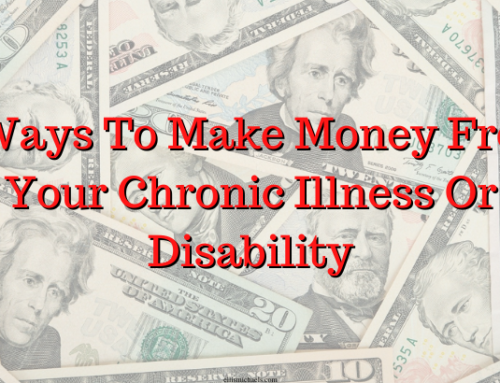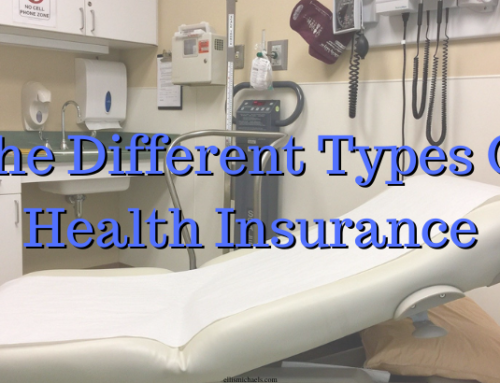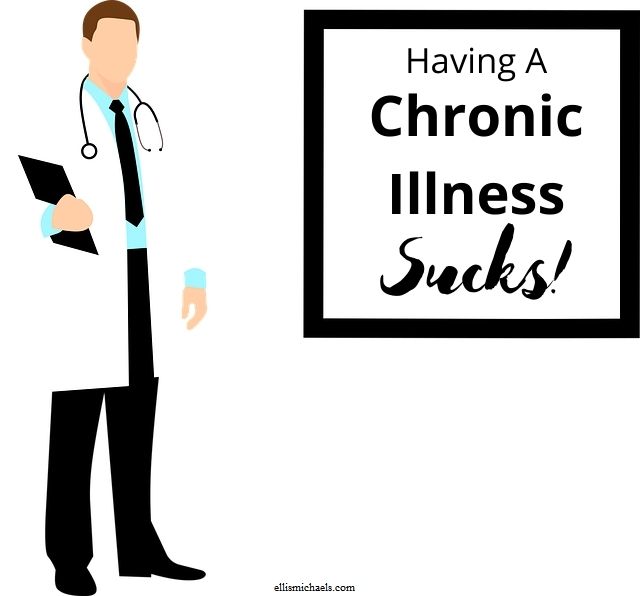The healthcare system can be an overwhelming and confusing mess, especially if you don’t have much experience dealing with it. When you’re first diagnosed with an illness, it can seem nearly impossible to figure out how it all works. Fortunately, you don’t have to do it all by yourself anymore. There are now people who specialize in helping others navigate their way through the messed-up medical system.
I’m talking about patient advocates. They can help find the right doctors for you, schedule your appointments, get you to those appointments on time, understand the information your doctor gives you, and so much more. That’s what we’ll be going over in this article: patient advocates and what they do. But first, let’s take an in-depth look at what patient advocates are.
What is a patient advocate?
Table of Contents
To put it simply, a patient advocate is someone who helps patients navigate their way through the healthcare system. Sometimes they are heavily involved in all the patient’s care while, at other times, they are only there to provide emotional support and some minor guidance when needed.
Patient advocacy has its earliest roots dating back to the 1950s and has gone by many names. Some other names for patient advocate include patient navigator, health advocate, patient representative, patient ombudsman, patient educator, patient care manager health advisor, patient advisor, and probably a few others. But to keep things simple, we’ll just call them patient advocates.
Patient advocates may work independently or as part of a patient-advocacy group. While there are several patient advocacy organizations, many of which offer educational opportunities, no official certification or license is required to become a patient advocate. However, a lot of patient advocates have prior medical training or have worked in a related field.
One of those related fields is medical billing. Dealing with health insurance companies and collection agencies can be a real hassle, especially if you don’t have any experience with it. Some patient advocates specialize is helping patients to understand and pay their medical bills. They may even be able to negotiate on your behalf to get some of your outstanding bills lowered.
While some advocates are medical-billing specialists, most are just general patient advocates. They help patients to get the best care possible and work with them in a variety of ways. Let’s take a closer look at what these general patient advocates do.
What do patient advocates do?
Patient advocates advocate for patients. Moving on, next section… I’m kidding, of course. While they most certainly do advocate for patients, advocates often do a whole lot more. Here are just some of the things that patient advocates do:
Help you get more out of the medical system
 Unless you’ve worked in the medical field or are an experienced healthcare-system navigator, you could probably be getting more out of your doctor visits. Patient advocates can help you to do just that.
Unless you’ve worked in the medical field or are an experienced healthcare-system navigator, you could probably be getting more out of your doctor visits. Patient advocates can help you to do just that.
Some of the things they might help you with are scheduling and getting to medical appointments, preparing for those appointments, actually going to them with you, asking your doctor questions you might not have thought of, interpreting any unclear doctor’s orders, and more. These are just a few ways a patient advocate can help you to get more out of the medical system. But there are plenty of others.
Help you to understand your condition and your options
If you’re not a doctor or other type of medical professional, sometimes it can be really hard to understand your condition. When I was diagnosed with Behcet’s disease at the age of sixteen, I didn’t understand any of it. I certainly could’ve used a patient advocate to help educate me about my disease.
![]() Patient advocates can help you to gain a better understanding of your illness. While few doctors are good at offering simple definitions of complex medical conditions (especially in only the few minutes they have with you), a patient advocate will take the time to make sure you understand your diagnosis. They should be able to not only explain it to you, but also give you educational material to look over at your leisure.
Patient advocates can help you to gain a better understanding of your illness. While few doctors are good at offering simple definitions of complex medical conditions (especially in only the few minutes they have with you), a patient advocate will take the time to make sure you understand your diagnosis. They should be able to not only explain it to you, but also give you educational material to look over at your leisure.
A good patient advocate will also help you to fully understand all your medical options. Most people don’t realize just how much freedom they have over their own healthcare. A patient advocate will let you know when you should switch doctors or at least get a second opinion. They can also inform you about treatment options your doctor may have neglected to mention.
If you’ve only been recently diagnosed, this is where a patient advocate can come in especially handy. The most important thing you can do when you’ve been diagnosed with a chronic illness is educate yourself about your diagnosis. Having a patient advocate to help you will make the process much easier.
Help to bring your healthcare costs down
A whopping 41% of working-age Americans have some form of medical debt. That’s 72-million people! And an additional 7-million elderly Americans have also accumulated some level of medical debt. That’s 79-million American adults with unpaid medical expenses.1
 Getting a patient advocate can potentially help to reduce or, in some cases, eliminate your medical debts. Your advocate should know how to negotiate with providers, prevent billing errors, and help you to get the care you need in the most-cost-effective way possible.
Getting a patient advocate can potentially help to reduce or, in some cases, eliminate your medical debts. Your advocate should know how to negotiate with providers, prevent billing errors, and help you to get the care you need in the most-cost-effective way possible.
Billing errors are a lot more common than you might think. Like, a lot more common. In fact, as many as 80% of hospital bills contain errors!2 Hiring a patient advocate can help you to save money on medical expenses and potentially bring down any medical debt you may currently have.
Provide comfort and support
Having a chronic illness can be terrifying, especially when you’re first diagnosed. While you probably don’t want to hire a patient advocate for this reason alone, having one can provide a level of comfort you wouldn’t feel otherwise.
Just knowing that you’ve got someone in your corner to help can make a world of difference. The only thing scarier than having a chronic illness is not having anyone to help you to deal with it. A good patient advocate will provide comfort and support while fulfilling their other responsibilities as well.
If you’re successfully self-managing your chronic illness but feel could use some additional emotional support, I don’t recommend hiring a patient advocate for this reason alone. You’d be better off connecting with other people living with either your specific diagnosis or a similar one. But if you’re not adequately self-managing your healthcare and want to hire a patient advocate to help you, they’ll likely also provide some level of comfort and support on top of their other duties.
Help with all other healthcare-related tasks
Patient advocates can help you with just about all your other healthcare needs. Anything short of giving you a sponge bath or performing a prostate exam, a patient advocate can help. In other words, they can help with all of your non-medical-but-still-healthcare-related needs. Here are some additional tasks that patient advocates can help you with that haven’t been mentioned:
- Choosing a new doctor or other healthcare provider
- Communicating with your doctors and other providers
 Filling out hospital, office, insurance, and billing forms
Filling out hospital, office, insurance, and billing forms- Scheduling appointments and transportation to/from
- Educating you about experimental treatments and upcoming clinical trials
- Going to some or all of your appointments with you
- Provide resources and information about your illness and health
- Help you make better, more-cost-effective choices
- Educate you about patients’ rights
- Help to educate your family and friends about your condition
- And more
The list goes on and on. But those are a lot of the responsibilities of a patient advocate. Now the question is: should you get a patient advocate?
Should you hire a patient advocate?
Only you can answer this question. But before you do, you need to ask yourself a few other questions like:
 What could a patient advocate offer me?
What could a patient advocate offer me?- Do I really need a patient advocate?
- Do I really want a patient advocate?
- Will my insurance pay for a patient advocate?
- If not, can I afford to hire a patient advocate?
Only after you’ve answered at least some of these question can you decide if you should hire a patient advocate. Generally, if you’re living with a chronic illness and are not happy with the healthcare you’re getting, you probably should think about hiring an advocate. Or if you’ve been recently diagnosed and have little-to-no experience dealing with the medical system, you could probably benefit from hiring one.
Personally, I think hiring a patient advocate is a great idea, especially if you’ve been recently diagnosed. I wish I would’ve had one during those first few years after getting diagnosed with Behcet’s disease. But now that I’ve been successfully self-managing my healthcare for over two decades, I probably wouldn’t get very much out of hiring a patient advocate.
Even if you think hiring a patient advocate is a good idea, you still need to make sure you can pay for one. Let’s take a look at what it costs to hire an advocate and see if insurance companies cover this expense.
How much does a patient advocate cost?
I wish I could give you a simple dollar amount, but it’s not that simple. The cost of hiring a patient advocate can vary greatly depending on a number of factors. Here are some of the factors that influence how much it can cost to hire an advocate:
Education and experience
 Some patient advocates have medical training, communications training, legal training, or other types of higher education. If an advocate is a doctor, nurse, attorney, or other professional, they can get away with charging much more for their services than someone with little-or-no training.
Some patient advocates have medical training, communications training, legal training, or other types of higher education. If an advocate is a doctor, nurse, attorney, or other professional, they can get away with charging much more for their services than someone with little-or-no training.
The same can be said of work experience. If a patient advocate spent twenty years working for a health insurance company, they will likely charge more than someone with no experience working in a medicine-related field.
Services they provide
Another thing that influences how much an advocate charges is what services they offer. This often ties into education and experience, but it doesn’t necessarily have to.
Different patients have different needs. And, as such, different advocates provide different services. If you just need someone to help you schedule doctor appointments, you should be able to find an advocate for much less than if you need someone to negotiate hospital bills, fill out insurance forms, and schedule doctor visits.
Certifications and awards
 There are professional organizations that offer board certifications in patient advocacy. The Patient Advocate Certification Board (PACB) offers – you guessed it – board certification in patient advocacy.3 To become board certified, an applicant must first pay to take the 150-question certification exam ($395), then pass the exam, and meet certain ethical and professional standards.
There are professional organizations that offer board certifications in patient advocacy. The Patient Advocate Certification Board (PACB) offers – you guessed it – board certification in patient advocacy.3 To become board certified, an applicant must first pay to take the 150-question certification exam ($395), then pass the exam, and meet certain ethical and professional standards.
There are also colleges that offer certificates in patient advocacy. Cleveland State University, for example, offers a patient advocate certificate program. If a patient advocate is board certified by the PACB and/or has a certificate from a university, you can expect them to charge more for their services than someone who doesn’t.
So, how much does the average patient advocate charge?
I know you want a dollar amount of what it costs to hire a patient advocate. But the truth is that there is a lot of variability from one advocate to the next. However, I’m going to do my best to answer the question with a dollar amount.
If you only need a patient advocate to help you with tasks like scheduling appointments and going with you to your doctor appointments, you should be able to find one for somewhere between $50-100 per appointment. However, if you need an advocate who specializes in something like medical billing, you may end up paying between $1-200 an hour. And if you need an advocate for a hospital stay or long-term service, you could end up paying thousands of dollars.45
Will health insurance pay for a patient advocate?
Unfortunately, the short answer is no. To hire a patient advocate, you’re more than likely going to have to pay for their services out of pocket. No private health insurance company will pay for you to have a patient advocate.6
While some hospitals and insurance companies may pay for one, technically the advocate works for them and not you. That means the advocate is looking out for your insurance company’s best interest, not yours. So, in reality, they really should be called either hospital advocates or health insurance company advocates.
While a very small number of employers offer patient advocacy support to their employees, the vast majority do not. That means, if you want to hire a patient advocate, you’ll have to pay for him/her yourself.
Where to find a patient advocate
There are a couple of great online resources for finding a patient advocate. Let’s briefly look at each of them.
Patient Advocate Certification Board (PACB)
The same organization that offers board certification in patient advocacy also has a great tool to help you find the right advocate for you. Their BCPA Locator can help you find a board-certified advocate in your area who specializes in the type of advocacy you need.
Patient Advocate Foundation (PAF)
This is another great resource for anyone who is interested in finding a patient advocate. The Patient Advocate Foundation website has a number of great resources for patients seeking various types of advocacy. If you’re looking for an advocate who specializes in case management in particular, the PAC is definitely worth checking out.
Should you become a patient advocate?
What if you’ve been living with a chronic illness or taking care of someone who has one for a long time and you’d like to share you expertise with others? Should you become a patient advocate?
The answer to this question is basically the same as the answer to whether you should hire a patient advocate: it’s up to you. Only you know if becoming an advocate yourself would be a good idea. But there are a few questions to take into consideration if you’re interested:
- Do you have a lot of experience navigating the healthcare system?
 You self-manage your own illness, but would you be comfortable managing someone else’s?
You self-manage your own illness, but would you be comfortable managing someone else’s?- Will your illness get in the way of your ability to advocate effectively for others?
- What unique qualities and experiences can you bring to the table?
- And most importantly: do you want to be a patient advocate?
These are just a few of the questions you need to ask yourself if you’re serious about becoming a patient advocate. But if you do decide that it’s something you’re qualified for and want to do, I say go for it! Your experience living with a chronic illness or taking care of someone who has one will give you an advantage over other advocates.
Patient advocates, in this respect, remind me of substance abuse counselors (SACs). The best substance abuse counselors are the ones who have struggled with and overcome addiction themselves. They have a certain level of credibility that others don’t. The same is true with patient advocacy. If you’ve been self-managing your own chronic illness, you know what it’s like to personally deal with it. You’ll be able to relate to your clients on a level that others won’t.
So, let’s say patient advocacy is something you think you’d be good at and want to pursue. Now you’re probably wondering what you have to do to become a patient advocate. Let’s briefly look at the steps you must take to become one.
How to become a patient advocate
Technically, you really don’t have to do anything to legally call yourself a patient advocate. There are no laws governing who can and cannot use that term. However, as the field of patient advocacy is growing rapidly, I’m sure that will change in the future.
But you don’t want to just call yourself a patient advocate: you want to actually become one. While there is no one-size-fits-all path to becoming an advocate, the following steps are a good general guideline.
1. Figure out your strengths, experience, and credentials
As we’ve already discussed, patient advocates come in a variety of flavors. What kind of advocate do you want to become? The answer will depend largely on what your strengths are, what experience you have, and your credentials, if any.
 It’s okay if you don’t have any healthcare-related-or-other credentials – but they definitely help. If you’re a doctor, nurse, therapist, dentist, lawyer, medical-billing specialist, or some other professional, you can base your patient advocacy around your expertise.
It’s okay if you don’t have any healthcare-related-or-other credentials – but they definitely help. If you’re a doctor, nurse, therapist, dentist, lawyer, medical-billing specialist, or some other professional, you can base your patient advocacy around your expertise.
And you’re also going to want to take an honest look at your strengths and weaknesses. If you have a hard time working with people, have poor organizational skills, or any other weakness that might get in the way of being a good advocate, you need to take a cold, hard look at them.
The opposite is also true. If you love being around people, are good at advocating for yourself and people in general, or have any other strengths that will help you to be an effective advocate, take them into consideration as well.
2. Consider getting board certified
While it’s not necessary to get certified by the Patient Advocate Certification Board, it can only help your patient-advocate career. For one, potential clients will be able to find you through their website’s advocate search feature. And two, patients will feel more comfortable hiring someone who has proven themselves to be competent by a nationally-recognized board of experts.
You could also enroll in a certificate program from a college that offers one in patient advocacy. If you have absolutely no medical-or-professional training, this might be a good option for you. You’ll not only learn all about being an effective advocate, you can add your certificate to your resume.
If you’re serious about becoming a patient advocate, you should get board certified. You can learn more about board certification from the PACB website.
3. Apply for patient advocacy jobs or look for your own clients
If you want to be a patient advocate, you can either work for yourself or get a job working for someone else. Working independently can have a number of benefits, but it also requires a lot more work. If you already know how to market yourself and advertise your skills to the public, this can be a great option. Otherwise, you’ll probably want to look for a job working for someone else.
When you’re first starting out, especially if you have no prior healthcare experience, this can be tricky. A lot of employers – whether they’re hospitals, insurance companies, clinics, or something else – want patient advocates with experience. If you’re already a doctor, nurse, or other professional, this shouldn’t be a problem. And it shouldn’t be a problem for anyone who went through a certificate program in patient advocacy from a university.
But for new patient advocates with no experience, most employers won’t hire you until you’ve got at least some experience. So, how do you get it? One way is to find an internship in patient advocacy or a related field. Some internships pay, while others do not. Either way, doing an internship can be a great way to get the experience you need to land a job as a patient advocate.
Another way to get experience is to enroll in a patient advocacy certificate program from either a local college or an online one. These program typically provide their students with enough training and experience to satisfy most employers.
How much money do patient advocates make?
There is a lot of variation between advocates in terms of earnings. Some of the factors that influence income are:
 Experience
Experience- Training/education
- Board certification
- Independent or employee
- Location
If you’ve been a patient advocate for ten years, you’re a licensed nurse, board certified, working independently, and live in a big city, you’re likely going to be making much more than someone just starting out.
That being said, the average base salary for a patient advocate is currently $16.20 per hour or $28,324 per year. But that’s the average salary. In general, patient-advocate salaries range from $7.25 to $34.90 an hour.7 But some employers pay even more. Here are a few of the top-paying employers of patient advocates:8
- Genentech – $65.03/hour or $113,717/year
- PeaceHealth – $50.55/hour or $88,386/year
- Department of Veterans Affairs (VA) – $38.15/hour or $84,953/year
- Amplity Health – $38.15/hour or $66,703/year
- St. John Health System – $34.54/hour or $60,400/year
As you can see, patient advocates have the potential to make some serious money. But I don’t recommended becoming one for the paycheck. The only reason you should consider becoming a patient advocate is because you genuinely want to help others.
Conclusion
Now you have everything you need to decide if you should get a patient advocate. For those of us living with chronic illnesses, a patient advocate can save us lots of money, help us to navigate the messed-up healthcare system, and a whole lot more.
Have you ever hired a patient advocate? What has your experience been like? Or are you a patient advocate yourself? If so, what has your experience been like working as one? Please leave your answers in the comments section at the bottom. And if you haven’t already, please sign up for the NZ newsletter below.
Join the Ellis Michaels mailing list to stay up to date with the latest news about chronic illnesses, recent articles and other publications, and more.
References
1Survey: 79 million Americans have problems with medical bills or debt. (n.d.). The Commonwealth Fund. Retrieved September 10, 2020 from https://www.commonwealthfund.org/publications/newsletter-article/survey-79-million-americans-have-problems-medical-bills-or-debt
2Booth, S. (2019, May 21). Up to 80% of hospital bills have errors. Are you being overcharged? Healthline. Retrieved September 10, 2020 from https://www.healthline.com/health-news/80-percent-hospital-bills-have-errors-are-you-being-overcharged
3Becoming a board certified patient advocate. (n.d.). Patient Advocate Certification Board. Retrieved September 12, 2020 from https://www.pacboard.org/getcertified/
4Torrey, T. (2020, Feb. 29). Cost to hire a private patient or health advocate: price vs. quality and value are considerations. VeryWellHealth.com.
5Glover, L. (2016, Jan. 21). Patient advocates: the coach in your corner for taking on the health care system. NerdWallet.com.
6An overview of the profession of patient advocacy. (2020, May). The Alliance of Professional Health Advocates. Retrieved September 12, 2020 from https://www.aphadvocates.org/profession-overview/
7Learn about becoming a patient advocate. (n.d.). Indeed.com. Retrieved September 12, 2020 from https://www.indeed.com/career-advice/careers/what-does-a-patient-advocate-do
8How much does a patient advocate make in the United States? (2020, Sep. 7). Indeed.com. Retrieved September 12, 2020 from https://www.indeed.com/career/patient-advocate/salaries







Leave a Reply